Feng Tianwei won the crucial third singles for Singapore against South Korea to propel the Singapore national table tennis team to the final.
Who is she?
Here are some quick facts about Feng Tianwei:
- Date of birth – August 31, 1986 (21 years old)
- Born in China
- Came to Singapore in April 2007; received citizenship nine months later in January 2008
- Part of China’s national youth squad before coming to Singapore
- Beat world number one Zhang Yining of China at the Asian Cup in Sapporo, Japan earlier this year
- World ranking in August 2007 – 73rd
- Current World ranking – 9th
REDpoll
Related stories:
The Chinese sporting diaspora: one quarter of all table tennis players at Beijing Olympics are China-born
Singapore wins table tennis semi-final to guarantee first Olympic medal in half a century

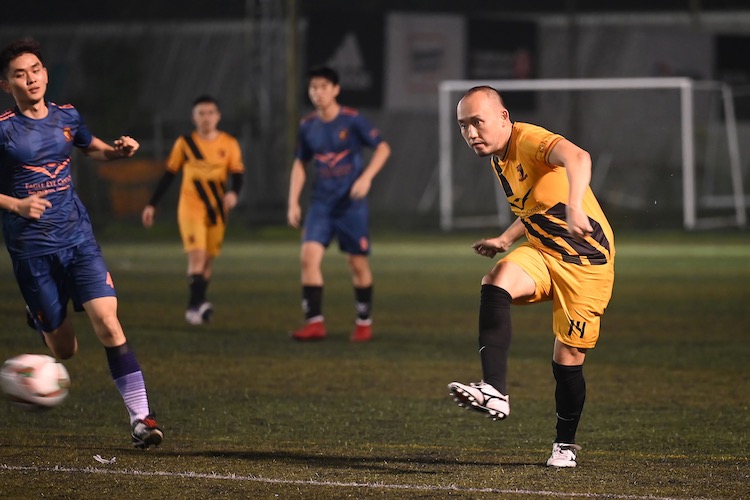
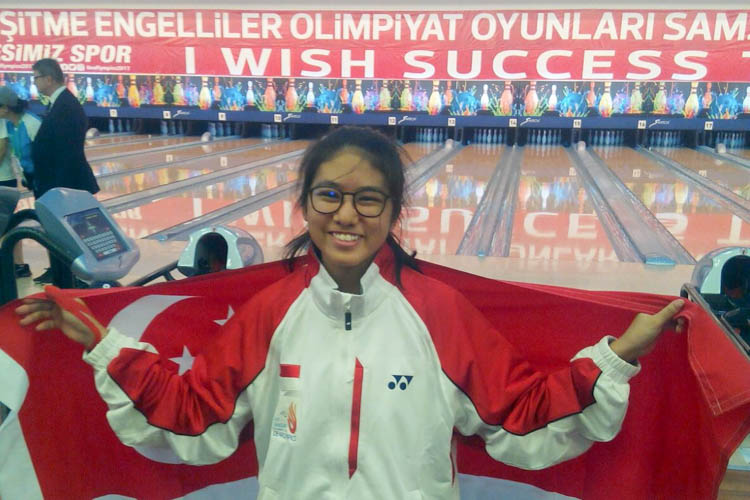
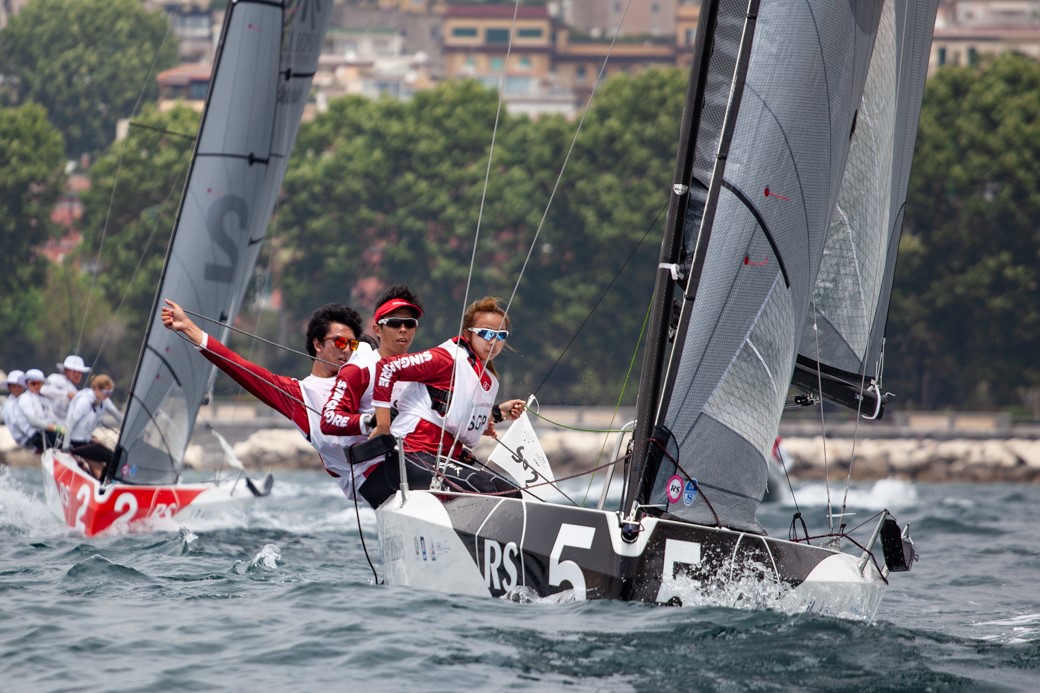
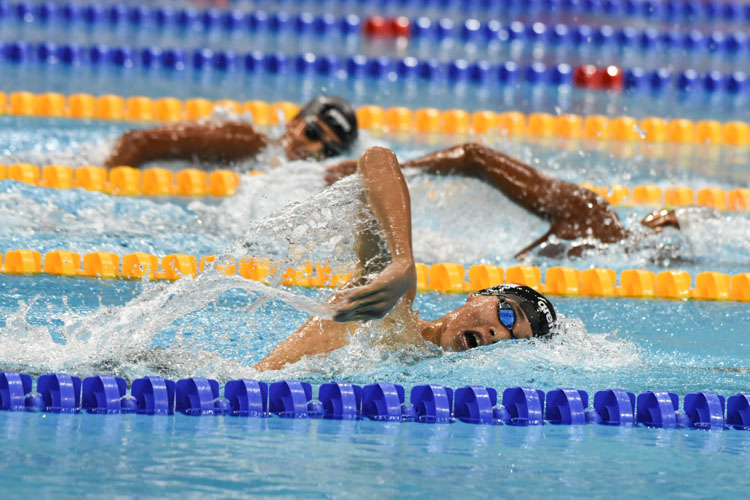
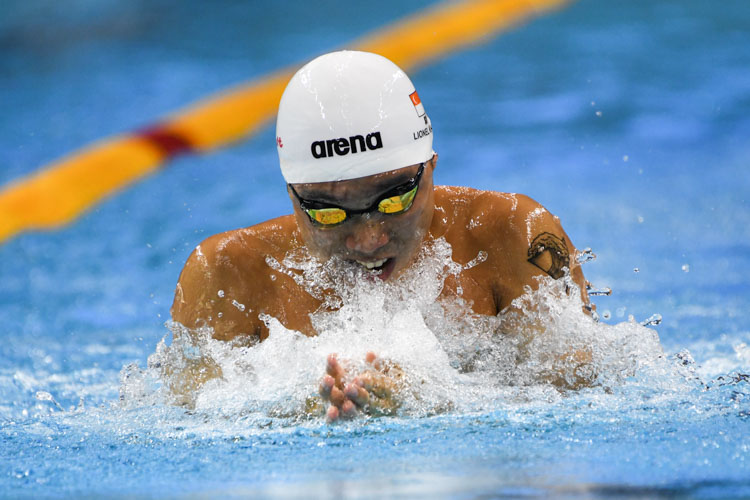
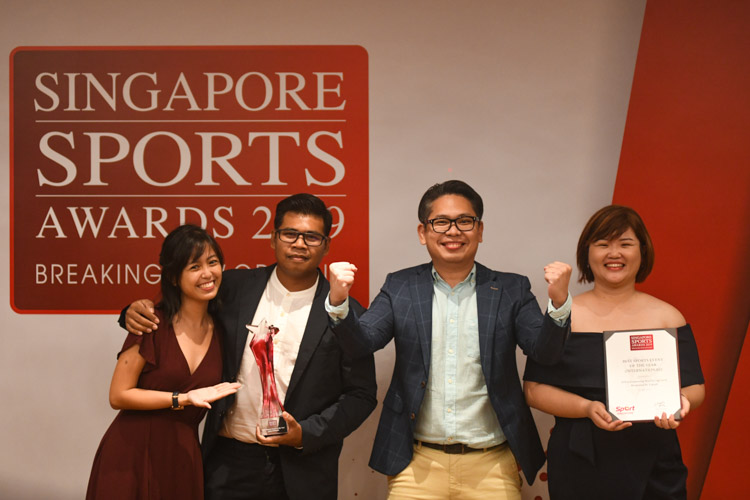
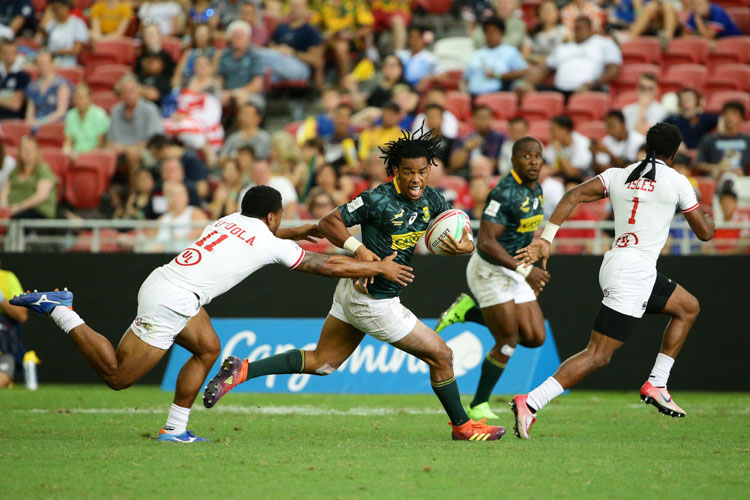
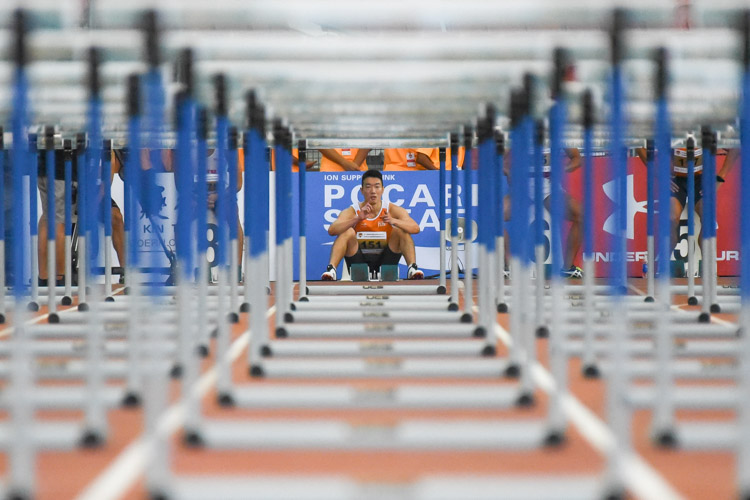
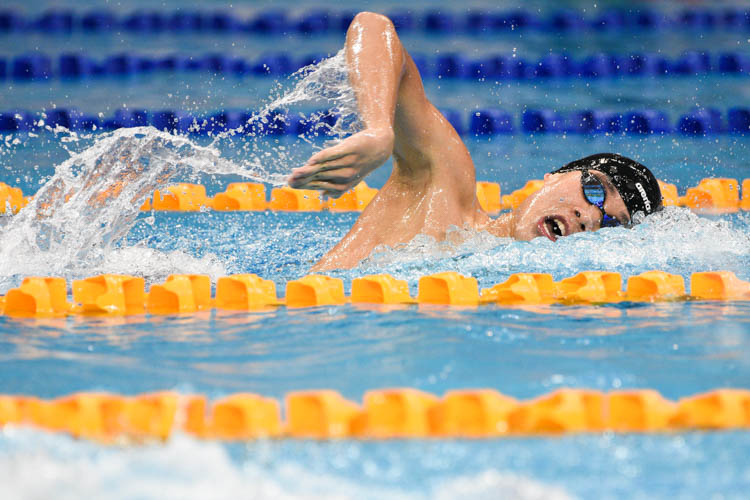
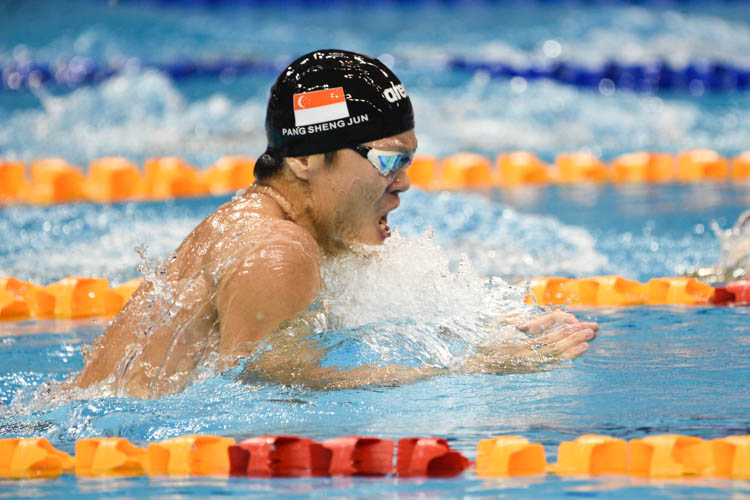
The lime light is all on the table tennis girls just because they made it to the international competition level. Would they have been critized if they were not known, not being brought into the lights of such competition? I think it is silly to discuss about buying in sport talents just for a medal or – not. There are many other reasons that may not be named neither understood by outsider (outsiders means – people who are non-singaporeans) who views us in the same light as you – a singaporean had. So would you like to think about you being a true blood Singaporean? Why ain’t criticism thrown at soccer players who are also bought in to play for Singapore? Why ain’t badminton players then critized too? Just because they weren’t given the attention. So are the China-borned table tennis players wrong to choose their own path?
[…] stories: The Chinese sporting diaspora: one-quarter of all table tennis players are from China Who is Feng Tianwei? Singapore settle for silver; first medal since […]
I enjoyed reading your piece, critical thinker. Thought provoking. Thanks for raising the level of discourse on this site.
and i forgot to add. Dang Ye Seo wasn’t pulled into Korea by the Koreans. She left on her own accord in order find a way to play in the Olympics, and decided to go to Korea. She spent several years as a practice partner as she wasn’t allowed to represent Korea for a certain number of years.
Quite unlike how our players were actively roped in.
And the Koreans do boast Ryu Seung Min, the defending men’s singles champion who beat Wang Hao in Athens.
Oh and one more thing,
the Korean women’s team had only one Chinese player – Dang Ye Seo.
Both Kim Kyung Ah and Park Mi Young are Koreans.
To Singaporean:
You said: “The PM talked about stayers and leavers in his rally a few years ago. People like you, are the leavers. Im sorry for being so steorotypical.”
First of all, the PM in question, Goh Chok Tong, has a daughter who married a British citizen and settled in the UK. I have no problem with people leaving, and think this whole point of “stayers and quitters” is a pseudo-label designed to generate social stigma against people who leave (and unless you have been a hermit and have not been paying attention, the govt has U-turned on this stance and decided to flail their arms enthusiastically wildly to establish links with Singaporean diaspora). But it is quite hypocritical (the proper use of the word, unlike how you did) for him to make that statement, when he need not look further beyond his own immediate family to pick out a “quitter” he was eager to condemn in front of national TV.
Now let’s look at this thing about pride of their achievement. Taking nothing away from it, it is no mean feat to win a medal at the Olympic Games. Some are willing to take deadly risks to just get there (see: Eric Shanteau, who postponed his treatment for testicular cancer to after the Games, so that he could participate).
They have earned their medal, and kudos to them. As for the debate on whether they are true Singaporeans is a flimsy construct.
What does it mean to be Singaporean? As a city-state (NOT A NATION – fact) consisting a majority of descendants of immigrants, it’d be a huge travesty to close the doors on modern-day immigrants and start drawing pseudo-nationalist lines between “us” and “them”.
The China-born athletes are now Singaporeans – fact. They have attained citizenship, they came here because they could get opportunities that otherwise would have been denied them or been much harder to get if they stayed (see our own ancestors – they came here nearly 200 years ago for pretty much the same reason).
My mother was a Malaysian and after marrying my father, became a Singaporean citizen. My grandmother, who came from China over 60 years ago, is a Singaporean as much as any of us are by any imaginable definition – yet she only speaks her dialect and would in fact feel more at home back in her hometown than here.
Interestingly, there isn’t debate on whether those 70-90 year olds in our country who don’t possess those popularly-defined “Singaporean characteristics” are “true Singaporeans”. They are. Even though they don’t speak Singlish, or have “kiasu” behaviour, and don’t have much of nationalist fervour.
In terms of language abilities, social sensibilities, purpose in coming to Singapore and general “Singaporean-ness”, the only difference between some of our elderly citizens and these China-born athletes is their age.
Hence the issue is not whether they are or can be Singaporeans. The concept of a Singaporean identity is so nebulous anyway. We are not even a nation. The word “nation” has been misused so often in our context. To say it is used loosely is being generous. By a political scientist’s dictionary, we cannot be defined as a nation – fact.
To give some perspective, the United Kingdom is a political entity, but not a nation. It consists of several nations, including England, Wales, Scotland, Northern Ireland, and perhaps even Cornwall by some accounts. You can usually get away with telling a Welshman or Scotsman that he is British, but you’d do well to keep your head on your neck if you said he was English.
All this talk of nationhood and national education and all those NDP songs is in fact the manifestation of a conscious attempt to foster the idea of a nation. Why do that? Because we are not one.
Back to the point, the real debate shouldn’t be over citizenship. And in fact, I have no problem with bringing foreign talent to help the development of local sports. But the same cannot be said for bringing in talent for the explicit purpose of winning a medal.
Case in point – Feng Tianwei. Her citizenship application was fasttracked to get her to play in the Olympics. To be brutally honest, we brought her in to buy ourselves a medal chance. The aim of winning a medal was clearly the priority consideration – not developing local sports.
And the simple fact is that she is Singaporean. She has the citizenship, she is an immigrant here to seek success (see: our forefathers).
But why did we bring her in? Was it for the good of Singapore sports? Was it merely for the medal? For the vainglorious notion of success? Is the worth of the local sports scene only measurable in terms of medals?
By this measure, why even bother to send athletes who will clearly only prop up the results standings? Why should no-hopers go to the Olympics? But of course that isn’t what sports is about isn’t it?
What happened to developing the mind and the body? What happened to mental training and development of character? Why is all about the medals these days?
All this talk of developing the local sports – hogwash. The key is the sports industry – the real cash cow. Getting people interested and willing to participate will generate income for the sports industry and foster its growth. Winning medals will help to push towards this material outcome – in “inspiring” the young. It’s a mentality endemic in this society from primary school sports all the way up to the level of professional sports – it’s all about the material benefits and desperate glory for the school, the team, the country.
To Singaporean:
You said: “The PM talked about stayers and leavers in his rally a few years ago. People like you, are the leavers. Im sorry for being so steorotypical.”
Goh Chok Tong, the PM you are referring to, has a daughter who lives in the UK, having married a British citizen. While I don’t think there is anything wrong in leaving – most of the Singaporean population are descendants of immigrants, lest you forget – I find it disturbingly hypocritical for a Prime Minister to open criticise others for being “quitters” (which is a dubious and very self-righteous label to slap on people) when his own daughter has left and settled overseas.
TIn any case, the Korean team had only ONE chinese player – Dang Ye Seo. Kim Kyung Ah and Park Mi Young are Koreans.
Interestingly, you use this label of hypocrites very cavalierly. Everyone is entitled to an opinion, and not everyone who feels disdain for this silver medal win necessarily are people who are fence-sitting swing voters on the issue who can’t get their heads round to making a clear stand.
Some people are clearly against this idea of imports for the sake of medals – is sports only about winning? Or about training the body and the mind? Is winning all we can measure ourselves with? Are we worthless athletes if we don’t win anything?
So should only those with a podium chance compete at the Olympics? If so then the Games wouldn’t have to last half as long. No need for the heats, semi-finals, prelims. Straight on finals all the way. Medals or nothing.
Let’s look at the matter of “pride”. Looking at Feng Tianwei’s case – she’s probably the best player in terms of individual performance – she had her citizenship application accelerated for her to make the Olympics. It can be strongly argued that we twisted some arms to get her in, for the sole purpose of winning a medal.
To take an essentially pragmatic view – we used money and resources to buy ourselves a medal chance and it paid off.
I have no problem against athletes emigrating. I do not draw differences between immigrants based on their field and careers. Getting in foreign sporting talent to help the local scene develop is one thing. Fasttracking them into citizenship just to win a medal is another.
The concept of a Singaporean identity is nebulous. We are not a nation. We are a city-state. There is a key difference, and it’s not merely in the semantics.
For instance, you can describe the United Kingdom as a political entity, but it’s not a nation. It consists of several nations within a united political body – England, Scotland, Wales, Northern Ireland (a unique case) and perhaps even Cornwall. Isle of Man while you are at it. You might get away with telling a Scotsman or Welshman that he is British, but you’d do well to keep your head on your neck if you tell him he’s English. I exaggerate somewhat, but in essence, national identity and British identity is not the same.
Same thing applies elsewhere. The Korean peninsula is a nation divided into two political entities. The Kosovars want to be independent of Serbia – as they feel that they are a nation in themselves. The list goes on.
Singapore cannot be defined as a nation in the strictest sense of the word. We have used this label very loosely and in fact, wrongly if you go by a political scientist’s dictionary.
My point essentially? There is nothing to say foreigners cant become Singaporeans. We are mostly descendants of immigrants anyway. Anyone has as much right to become a Singaporean as we do if you look at it in that way. Li Jia Wei, Feng Tianwei and Wang Yue Gu can be as Singaporean as anyone of us are.
But that’s not the issue isn’t it? The question is not whether they are Singaporeans. Fact is they are citizens. End of. Our ancestors came over to seek a better life, an opportunity to achieve something they couldn’t back at home. Hardly any different to these athletes we recruit. What is being Singaporean? My grandmother can only speak her dialect, speaks no English, doesn’t possess any of those popularly-defined “characteristics” of being a Singaporean, and for all practical purposes, would be more comfortable with her surroundings if she was back in her hometown. But she is Singaporean.
The issue is therefore that of the purpose of our policy in developing sports here. Is there a point in buying success in sport? What is sport about? A podium finish? A medal? Does improving the sports scene mean going for the quick fix (and for all intents, the only fix in a society that views professional sports with disdain) or improving participation and interest and allowing successes and failures to run their course?
And for better or for worse, more and more international sporting bodies are taking a rather dim view of such talent trading. FIFA has already made rule changes a long time ago. Recently, the ITTF has approved a ruling that bars emigration for players above 21 to other nations for the purpose of representing them, and those below 21 needs to fulfil residency criteria in order to represent their new country.
Cynics can say the traditional powerhouses are forcing the issue in order to secure their stranglehold on medals. Perhaps that’s true in some ways. But do we want to “develop” sports by buying winners, or honing talents to the best that they can be and fielding them on their merits?
The real question is, is sports all about the money, or is there anything left of the fabled (I’d say mythical) Olympic spirit? The answer is quite clear. A vibrant sports scene may mean a healthy society, but most of all, it means a booming sports industry that brings in the cash, and a productive workforce. And having winners boosts the image, and accelerates the development of this growing cash cow.
oei non-singaporean,
EVEN IF singapore din deserve the medal which was your opinion, surely the athletes themselves deserved the medal for their hardwork
Hello Mr Tan Bock Thiam,
There are two metrics here: TOTAL VOTERS and TOTAL VOTES
The number under the poll shows TOTAL VOTERS.
The numbers next to each answer shows TOTAL VOTES.
TOTAL VOTES are higher than TOTAL VOTERS because multiple votes are permitted for each voter.
I hope this clarifies and thank you for taking the time to calculate.
Regards
les
The REDpoll has shown the wrong statistics results!
Total votes is 404 NOT 371. Hence all got lower
percentage than shown. It should be 44.3%, 28.2%,
19.1%, 5.9% and 2.5% respectively.
If Singaporean despise Singaporean leavers (or quiters), then why worship the China leavers who represent Singapore for the table tennis in the Olympics?
The winning components of a game are ability, mindset, luck.
In an Olympics event, every point is a culmination of these components. Eventually, how you see yourself is what stands out and for this I rate mindset as key. You must have that mindset to know for sure (despite moments of really bad luck such as the ball dropping off to the wrong side) that you can possibly beat this opponent. You (alone) must be very convinced that you can beat this opponent then only you have a chance. The NOW factor is important in mindset i.e forget the past, stop thinking about the future and just concentrate on what you can do for the present. Only when you win against tough opponents will you then be able to use these past memories to your advantage. Physical fitness is paramount to achieve lightning speed, twists and turns of the body at near-impossible angles. Finally, back to the crux of the whole thing is seeing yourself winning in your mind over and over again is what eventually counts in the making of a champion.
well stop cheating yourselves. I wonder if Feng Tianwei would be given a citizenship but for her sporting talents. Just face it, the nation does not deserve the medal.
To Anon
You mention that our REDpoll is biased.
Please feel free to suggest your own version of a poll by listing out a question and some possible answers (about 5).
Please do so here in the comments section and then we can evaluate and put it up for you if it’s suitable for people to take part in it.
As an athelete myself, I do not see how us Singaporeans are not given the support by the government.
Singaporeans are a bunch of two-faced people. The table tennis team consisting of the china-born players won us the silver. Many said they arent proud cause they arent ‘true singaporeans’. But if they DIDNT win any medal, Im sure all these same people will be criticizing them.
also, if local students aim to be a world class athelete, i bet majority of the people surrounding him/her will deem them ‘stupid’ and say things such as ‘you cant go far in sports’. and if they DIDNT aim to be such an athelete (like how it is now), people like YOU Mr. Anon are saying that they are not given the chance to.
Come on, the women’s table-tennis team trained hard and certainly deserve to win that silver medal for Singapore. You have absolutely NO RIGHT whatsoever to take that away from them. No right.
If it was that easy to win medals, every country would be winning them. The Korean team had china players, the dutch team had china players, even teams like australia and the US have china-born players. Why arent they the ones winning it thn, do they not have more money than us?
Yes, i feel very strongly over this issue because I am proud of them, and I am proud to be a Singaporean. During the medal presentation, someone was waving the huge Singapore flag, right infront of the cameras; The singapore flag was risen up high within the gymnasium, I felt this emotion that you hypocrites will never, ever experience.
The PM talked about stayers and leavers in his rally a few years ago. People like you, are the leavers.
Im sorry for being so steorotypical.
As a local athlete, I cannot help but notice how bias the “REDpoll” was. I’m not proud but rather disgusted to see that we have to resort to non-Singaporeans or rather… NOT HOME GROWN athletes to win “glory” for us.
As for those who think its a proud moment, what about your OWN SINGAPOREAN athletes who have to put up with both competition from these expatriates, maintaining their training/performance while coping with the high costs of living?
There are many things that can be said, like how local athletes cannot perform hence the need for foreign talent etc etc. If local athletes are given the SAME type of training and support that these foreign talent are given, I don’t see how they cannot excel.
From that point on, they are limited only by their genetics.